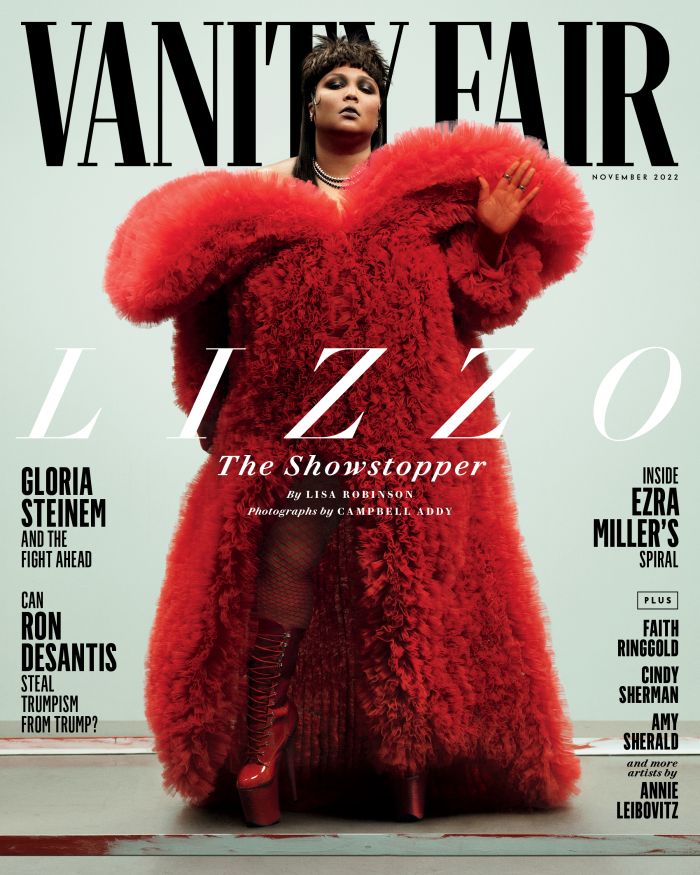Lizzo is the latest cover star for Vanity Fair, opening up about her thoughts surrounding the most recent headlines in her career.

Source: Campbell Addy / Vanity Fair
Vanity Fair’s November issue highlights artists and advocates across generations who are fighting on the new front lines of reproductive justice, who advance feminist causes through their work, and who by their own sheer excellence carve out indelible space for women’s voices in American culture. In the magazine’s latest cover story, Lizzo talks all about the overturn of Roe v. Wade, her decision to remove a slur from her song following public backlash, and the claims that she makes music for a white audience.
Following the overturn of Roe v. Wade, Lizzo donated $500,000 to Planned Parenthood and the National Network of Abortion Funds. She also had Live Nation, her tour promoter, match that with another $500,000.
“The Supreme Court has politicized law and made it a weapon against human rights,” Lizzo told Vanity Fair. “An overwhelming amount of people did not agree with what the Supreme Court did. It’s about power and control. It’s about white male supremacy; it’s always been about white male supremacy in this country and the people who are complicit in helping uphold it–who are a lot of white women.”
Earlier this year, the pop star received online backlash for including the ableist slur sp-z in the lyrics of her song “Grrrls” (…Hold my bag / Imma sp-z). She very quickly changed the lyrics, which she explained in her cover story.
“I’d never heard it used as a slur against disabled people, never ever,” Lizzo told Vanity Fair. “The music I make is in the business of feeling good and being authentic to me. Using a slur is unauthentic to me, but I did not know it was a slur. It’s a word I’ve heard a lot, especially in rap songs, and with my Black friends and in my Black circles: It means to go off, turn up. I used [it as a] verb, not as a noun or adjective. I used it in the way that it’s used in the Black community. The internet brought it to my attention, but that wouldn’t [have been enough] to make me change something.”
Lizzo went on to say that the criticism that disturbs her the most is that she makes music for a white audience.
“That is probably the biggest criticism I’ve received, and it is such a critical conversation when it comes to Black artists,” she says. “The thing is, when a Black artist reaches a certain level of popularity, it’s going to be a predominantly white crowd…I am not making music for white people. I am a Black woman, I am making music from my Black experience, for me to heal myself [from] the experience we call life. We need self-love and self-love anthems more than anybody. So am I making music for that girl right there who looks like me, who grew up in a city where she was under-appreciated and picked on and made to feel unbeautiful? Yes. It blows my mind when people say I’m not making music from a Black perspective–how could I not do that as a Black artist?”
Read Lizzo’s Vanity Fair cover story in its entirety here.








Comments
Bossip Comment Policy
Please read our Comment Policy before commenting.